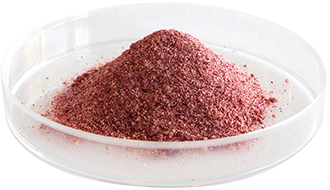7 Ways To Calm An Overactive Immune System Naturally
Did you know that diseases related to an overactive immune system are believed to be a modern-day urban affliction?
Even today, in less developed countries such as those in Africa, people are rarely diagnosed with autoimmune diseases or diseases related to an overactive immune system.
Why? It’s believed that by exposing oneself to the elements, not living in an overly-sanitized bubble, eating a balanced diet with less processed food, and by getting adequate sleep without distractions at night – our body and the immune system can better differentiate between who is a friend and who is a foe.
Learn more about how our immune system works, what an overactive immune system is, how modern medicine may not be the best to calm an overactive immune system, and how you can naturally calm an overactive immune system.
—
How Does Our Immune System Work?

Our immune system fights everyday pathogens with inflammation. Inflammation is part of our innate or “always-on” immunity. It is a normal response by our body to harmful stimuli, and can be divided into two; Acute inflammation and Chronic Inflammation.
Acute inflammation is the initial immune response of our body, involving activation of our immune system, destruction of the offending stimuli, healing of any damage sustained during this process, and then ceasing.
Chronic inflammation is long-term, ongoing inflammation that can damage both the healing process and nearby tissues, frequently without resolution. Chronic inflammation is a key sign of an overactive immune system.
A healthy body and immune system can balance Acute and Chronic inflammation. It can generate enough Acute inflammation to be able to neutralize the invading pathogens or resolve any other external stimuli. While not causing Chronic Inflammation that may damage healthy tissues and organs.
Read more about Inflammation. What is inflammation?
What is an Overactive Immune System?
An overactive immune system refers to a disproportionately strong response to perceived threats.
It is a state of Chronic Inflammation where the body’s immune responses are damaging the body’s own healthy cells, tissues, or organs in addition to or instead of fighting actual threats.
An Overactive Immune System or Chronic Inflammation is associated with a wide range of diseases including heart disease, different types of cancer, extreme obesity, diabetes, autism, dementia, and even depression.
Most Autoimmune Diseases such as Type 1 Diabetes, Asthma, Arthritis, Multiple sclerosis, Lupus, IBS, Addison’s disease, Graves’ disease, and Sjögren’s syndrome amongst others are also all attributed to an overactive Immune System or Chronic Inflammation.
How Does Modern Medicine Calm an Overactive Immune System?

Most modern medicines and medical practices focus only on treating the symptoms of an overactive immune system, but not its causes. Medicines like Aspirin, Advil, Motrin, and Steroids are all made to suppress the normal immune system and “shut off” Chronic Inflammation.
While this is beneficial in the short-run, these medicines don’t help either diagnose or resolve any underlying causes for the inflammation. It’s possible for these underlying causes to be genetic, but at times they can also be hidden infections, allergens, environmental pollutants, toxins, improper diet, sleeping habits, or even lifestyle stress amongst others.
It’s important to note that inflammation is a normal body process and critical to the functioning of our immune system. However, failing to understand the cause of Chronic Inflammation, and focusing only on removing its symptoms may be akin to taking the batteries out of your fire alarms at home; it’ll solve the noise problem, but if there is a fire burning inside, now you’ll never know.
How Can You Calm Your Immune System Naturally?
It’s most suitable to calm our immune system naturally in the long run. This can be done by:
Giving Your Body Proper Rest

Sleep is essential for the body to repair and rejuvenate.
In addition to helping us think clearly and being more sociable. Adequate sleep is key in helping us fight diseases, and keeping our mind and body healthy.
Lack of sleep is often associated with higher levels of inflammation, tension, diabetes, obesity, depression, disease, and an overall shorter lifespan.
So it’s essential to have a cool, dark room without any lights or other distractions to ensure you can have a completely restful sleep. If you suffer from insomnia, sleep apnea, chronic lack of sleep, or any other sleep-related disorder, it’s critical to see a doctor and have it resolved immediately.
Without proper and restful sleep each night, you may always have an over-active immune system.
Be Mindful of Your Diet and Invest in Your Gut Health

Our diet and gut health play a critical role in our well-being. In combination with the other tips listed here, what we eat is crucial in helping calm an over-active immune system.
Foods that are most suitable to be consumed include eating a wide range of natural whole fruits, vegetables, beans, whole grains, olive oil, ginger, rosemary, basil, turmeric, and ground flaxseeds.
Introducing key nutrients to the diet such as zinc, fish oil, vitamin C, vitamin D, and probiotics via medical or dietary supplements is also critical.
As well as avoiding the consumption of inflammatory foods such as meat, egg yolks, and processed foods such as biscuits, noodles, crisps, sugar, sugary foods, most packaged foods, and refined grains such as white bread, white rice, and cereals.
As a rule of thumb, the fresher the food, ideally made the same day, with ingredients that didn’t need a factory or industrial environment to create, are best to calm an overly active immune system.
Also eating fewer, smaller meals is suggested as compared to larger meals. Our body knows that many potential pathogens come through what we eat. So the longer a meal takes to digest, the longer our immune system is left on high alert, or in a state of Acute Inflammation.
Also read – Xenohormesis- is this why plants are healthy for humans?
Invest in your Physical Health

Regular exercise is a natural anti-inflammatory. It increases our muscle strength, boosts endurance, strengthens our heart and lung muscles, and also delivers oxygen and critical nutrients to all our tissues.
Practicing Yoga or Tai Chi, along with focused breathing exercises that alternate between hyperventilation and breath-holding are also known to help calm an overactive immune system.
Read more here – BerriQi for breathwork
Invest in your Social and Spiritual Health

Human beings were made to form bonds with others. It is often that we are most anxious, angry, or depressed when we are alone. These are also the mental states that stress our immune system the most.
So by being with family and friends, people that we like, and pets, we’re able to transform these stress-causing feelings to stress-reducing feelings of love, openness, physical touch, camaraderie, and companionship.
Similarly, by practicing meditation, listening to music, pursuing a hobby, or engaging in spiritual or religious activity, we’re able to better control our state of mind and with it keep our immune system calm.
Keep Good Oral and Home Hygiene

Gum disease doesn’t only cause damage to the gums but also leads to inflammation or an immune response in other parts of the body, especially the heart.
So by brushing and flossing twice a day, not only do we keep our teeth and gums clean, but we also help keep our immune system calm.
Similarly, our immediate environment can affect our immune system. Reducing indoor pollutants like pet dander, mold, fungal spores, dust, dust mites, pollen, harsh cleaning chemicals, and even insect repellents can help calm our immune system.
Read more – Most common respiratory allergens
Other positive stimuli like fresh flowers, indoor plants, natural or bright lighting, wind chimes, or the sound of water also help calm the mind, and with it our immune system.
Check for Hidden Infections, Allergens, and Toxins

The immune system can be overactive owing to infection, allergen, or toxin that may not be known.
For example, after taking lots of antibiotics, yeast-related infections can prosper. Similarly, people may be allergic to certain foods without knowing, especially gluten and dairy products.
Mercury-related poisoning, either via seafood, by touching or ingesting products with mercury, or by working in industries or industrial processes that use mercury can also lead to an overactive immune system.
So it’s important to look for these hidden infections, allergens, or toxins with the help of your doctor to ascertain if this may be causing an overactive immune system.
Quit Smoking

In addition to costing money, making your teeth and skin look worse, and damaging the lungs, smoking also leads to more allergens going into the body in the form of smoke, tar, and other chemicals – all of which lead to heightened inflammation and with it an overactive immune system.
It can take 30 days or more after quitting smoking for our body’s immune system to go back to normal.






